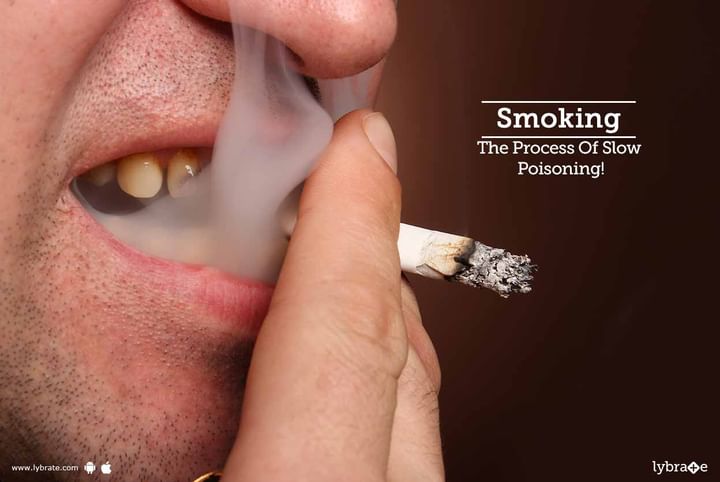Smoking - The Process Of Slow Poisoning!
The consumption of tobacco by humans began many years ago and has taken many forms ranging from rolled tobacco leaves and pipes to cigarettes. Smoking is a habit that is easy to start, but is difficult to quit. Smoking has both short term effects such as bad breath, tooth and gum loss, premature ageing and weakened immune system and long term effects that impair the respiratory system and cardiovascular system.
Smoking can cause and worsen diseases like cancer of lungs, throat, mouth, kidneys and blood and other chronic obstructive pulmonary diseases. Smokers also have a higher risk of conditions such as dementia, cataract, pulmonary fibrosis, psoriasis, osteoporosis and optic neuropathy. Smoking can also affect fertility, cause erectile disorders and speed up the onset of menopause.
It is said that a smoker’s life expectancy is 10 years less than that of a non-smoker. There are three main components of cigarette smoke that can harm the body.
- Nicotine: Nicotine is what makes cigarettes addictive and make smoking a habit. In the beginning, it may stimulate the brain but in the long run, your body can begin to crave for nicotine. If this craving is not fulfilled, it can cause irritability, restlessness, headaches and shortened attention span.
- Tar: Tar in cigarettes contains many harmful chemicals and is deposited in the lungs. From here it enters the blood vessels and is carried to other parts of the body. In many ways, tar is akin to a poison.
- Carbon monoxide: Carbon monoxide affects the blood’s capacity to transport oxygen from the heart to the rest of the body. In the case of pregnant women, carbon monoxide can also reduce the amount of oxygen available to the growing foetus and hence cause complications in pregnancy. Children born to smokers are also said to have an increased risk of suffering from congenital defects and conditions like asthma.
The good news is that quitting it is possible and its benefits can be experienced right away. Within the first 72 hours of quitting, the bronchial tubes begin to open up and breathing becomes easier. If you stop smoking before the age of 50, you can reduce your risk of dying from smoking related complications by 50%. The most important part of quitting nicotine is your own determination and willpower. Nicotine replacement therapy in the form of gums, patches, lozenges and inhalers can also help deal with nicotine withdrawal symptoms and make the process easier.
In case you have a concern or query you can always consult an expert & get answers to your questions!



+1.svg)
